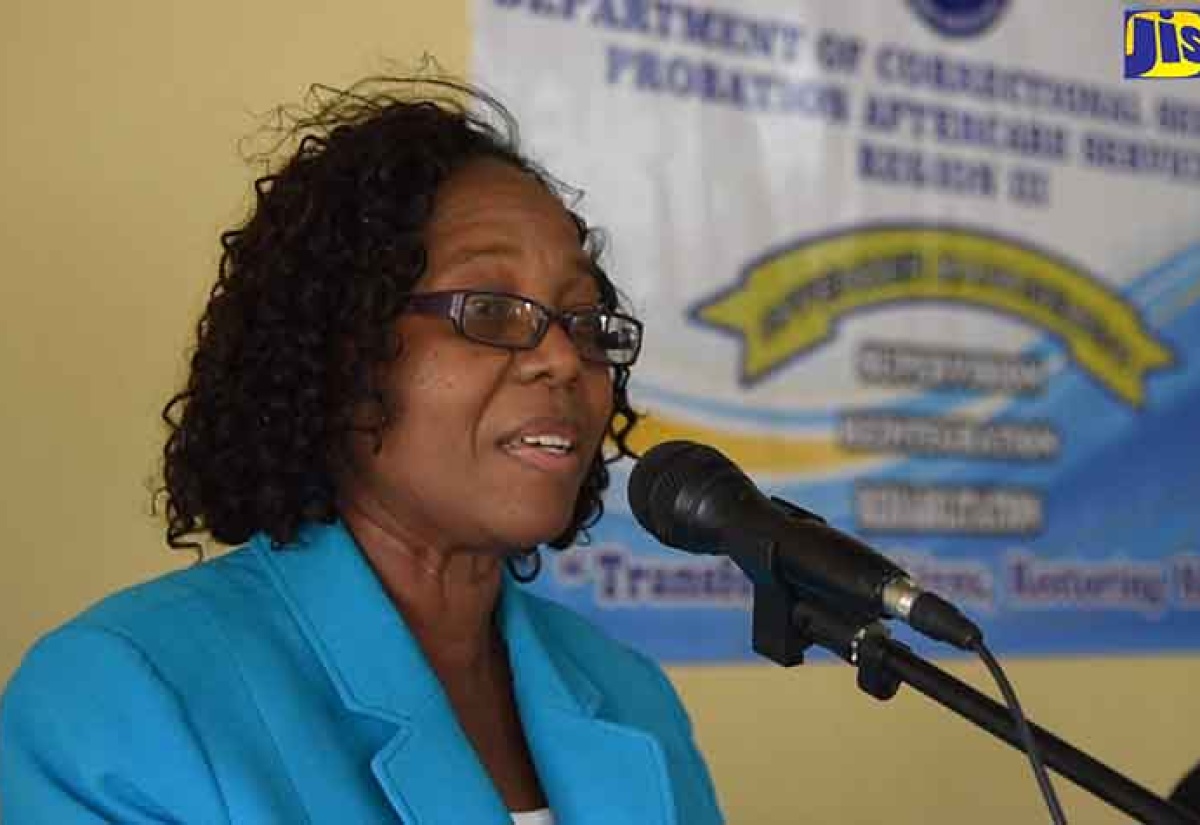Probation Aftercare Services Carries Out Intervention in Portland Cottage
By: , January 31, 2018The Key Point:
The Facts
- Miss Williams, who is Vice President of the Portland Cottage Citizens’ Association, was speaking to JIS News during a recent community walk-through and town hall staged by the Probation Aftercare Services (PAS) in the small fishing community.
- The intervention saw several officers from the Clarendon probation office engaging with residents and providing information about the agency’s work in monitoring and working with offenders in order to prevent reoffending and keep communities safe.
The Full Story
When Inez Williams’ oldest son got into trouble with the law, it was his probation officer who helped him get his life back on track.
She tells JIS News that the officer advised him to seek training at the HEART Trust/NTA in May Pen, Clarendon.
“He went, and now he is studying to be an executive chef,” she boasts.
Miss Williams, who is Vice President of the Portland Cottage Citizens’ Association, was speaking to JIS News during a recent community walk-through and town hall staged by the Probation Aftercare Services (PAS) in the small fishing community.
The intervention saw several officers from the Clarendon probation office engaging with residents and providing information about the agency’s work in monitoring and working with offenders in order to prevent reoffending and keep communities safe.
A number of agencies were also on hand to offer advice and information about their range of services.
These include HEART Trust/NTA, Access Financial Services Limited, National Council on Drug Abuse, Court Management Services, The Independent Commission of Investigations, Child Protection and Family Services Agency, and fire and health services.
Ms. Williams, who is also Chairperson of the Portland Cottage Primary School Board, says she is grateful for the interest and intervention of the PAS.
“I am happy to see the help that is coming to our community. We are not a high-crime community, and we don’t want things to reach that state, not now or in the near future,” she points out.
“So, I hope and trust that as they speak today, others will get the picture and try to work with them,” she adds.
The PAS within the Department of Correctional Services (DCS) deals with persons who have been given community-based sentences. It also provides intervention services for persons at risk of entering the justice system, helping to steer them away from delinquent, unlawful activities.
Support is provided for families facing challenges, including chaotic home life and inadequate parental supervision.
Director of the PAS, Janet Davey, tells JIS News that the PAS facilitates assessment of offenders, interventions, referrals and case management services for eligible families, among other rehabilitative activities.
She adds that the officers also develop strength-based case plans for each offender, to provide for the safety and protection of the community; hold offenders accountable for their behaviour; provide care, treatment, and guidance as appropriate; and assist in the rehabilitation of minors.
“Offenders are contacted in field offices and in the community, and the officers maintain and document regular contacts with parents, school personnel, and law-enforcement officers,” she notes.
Ms. Davey says that the walk-though in Portland Cottage gave the officers the opportunity to initiate contact and engage the residents outside of the usual rehabilitative set-up.
“Moreso, Portland Cottage is a fishing community, so persons don’t really go out much to seek information, and some might not have the resources. So bringing the other social service agencies to them serves a twofold purpose,” she notes.
She says the up-front interaction with residents helps to establish relationships and bolsters the PAS’ efforts to implement supervision programmes.
These programmes provide juvenile offender supervision, accountability in terms of compliance with court-ordered conditions of probation, and assistance to pursue lawful self-sufficient activities, Ms. Davey points out.
“We are showing them that we care about their social welfare, so the interactions will be less apprehensive,” she adds.
Commissioner of Correctional Services, Ina Hunter, says the probation aftercare officers play an integral role in crime-fighting through the rehabilitation of persons under supervision within the communities.
She says that every effort is made to prevent clients from re-entering the correctional system.
Ms. Hunter encouraged the residents to get the relevant information and contacts and advised them to keep in touch with the officers.
[foogallery id=”173495″]
Orville Moore, Chief Probation Aftercare Officer for Region 3, which includes Clarendon, Manchester and St Elizabeth, says community intervention and social services are necessary in winning the battle against crime.
“It is extremely important; persons need to realise that there are resources around to help them,” he notes.
“We came into the community and did some feasibility studies to know exactly what the issues are, so it’s not just a hit and miss situation. We know exactly what we are dealing with. That is how we identify the agencies and bring them along to address specific concerns, and also the relevant persons to talk with,” Mr. Moore shares.
He points out that it is often difficult to treat a client without addressing the environment that he/she is coming from, “so the role of the probation officer is not just to counsel or supervise the individual but also to have an impact on the community”.
Mr. Moore says successful probationary work requires collaborative relationships with various partners, and so he commended the service agencies for coming on board.
He says the response from the residents was very good. “You would be amazed to see how much citizens need this kind of intervention, because many times the agencies are there, but some distance away, or residents are unsure who or where to go to,” he points out.
The PAS has already carried out interventions in Region 2, which comprises Portland, St. Mary and St Ann; and Region 4, which comprises Westmoreland, Hanover, St James and Trelawny.


